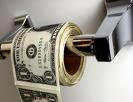A sale culture is not a fancy phrase or slogan you hang on your walls. It’s the collective actions the sales leaders and sales people are performing that result in an environment of such. Building the environment is very important! Because it will affect the behaviour of the people in it that ultimately bring in the results.
There is also the ‘last minute’ culture where sales people wait till the end of the month or quarter before they start moving out to bring in the sales. You know what’s the end result of this culture? Buyers know your sales people are desperate to meet targets in those timelines and guess what they will tell your sales people,” I can help you with those sales, just give me a better price.” Boom! Discounting practice, bad margins and low profits.
Another terrible one is the ‘we are cheapo’ culture. We sell on price is their corporate motto. They don’t sell on value, they don’t focus on all other things that make them different. That’s the fault of the sales leaders of course. Main reason? Lack of training.
Here’s two good cultures:’ learning’ culture. I manage to build this culture when I was a sales manager. The first step to build a powerful sales culture is the leader. The leader is live by the culture you want to build. Everyday, yes, everyday, whenever enter the office start off with a short 1-5 minutes motivational speech. It’s not a bashing speech, it’s a motivational speech and my team is eager to listen to what I have to say. And in my sales meetings, every member of the team must give a short speech too, meaning they need to go read something from somewhere in order to have stuff to say. This is practiced regularly thus creating a learning culture.
Another good culture is the ‘brand congruent’ culture. This is the one you want to build. It simply means the culture reflects what you want it to be. Do you want to create a professional image sales force? Do you want to create a high energy sale force? Do you want to create a Duty focused sales force where they are responsible for their actions and accountable for their results? Here are 5 steps for you to build a sales culture:
1. Know what kind of a sales culture you want to build.
2. If you already have a sales culture, know what has to stop to build your new sales culture.
3. What new activities must the team live by and do that is aligned with the new sales culture?
4. When do you want it to happen?
5. What must you personally as a sales leader change first before implementing change in the team?





